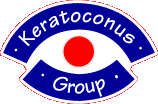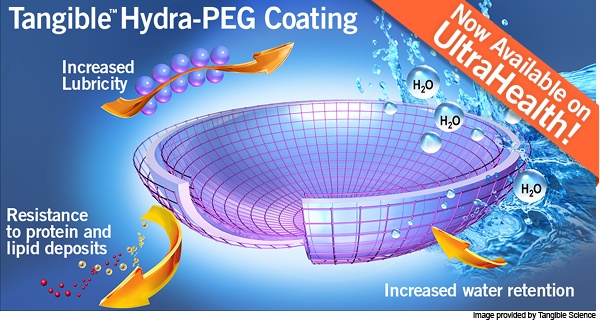Recently a number of our members have experienced problems when supplied with new scleral contact lenses. Such was the concern that we asked members for feedback in our Spring 2022 Newsletter.
We recently hosted one of our occasional KC Coffee mornings and were fortunately joined by one of the leading optometrists in the Moorfields Contact Lens Department namely, Aneel Suri. He informed us of a new coating that can be bonded to some (but not all) hard contact lens materials. Its availability is increasing and hopefully by the year end it will be available for the majority of RGP and scleral lens materials in use in the UK.
The coating is called “Hydra-peg” and was developed by a company called Tangible Science. You may want to draw your optician’s attention to it if you are experiencing problems with lens wettability which can cause poor vision and comfort primarily in scleral lenses. It will not address any discomfort caused by ill-fitting lenses. You can read about it – here
Update – 14th April 2025
In response to a question from one of our members, we received the following answer from Martin Conway of Contamac:
As to Hydrapeg, this coating has been widely accepted by the scleral lens laboratory network, across the US and Europe.
In answer to the question “ Can lenses be re-coated?” – well in fact it is possible to strip and recoat a lens but the risk of a contaminated lens coming contact with new lenses being prepared in the laboratory make it impractical.
Labs conform to extremely tight protocols which govern how lenses and raw materials are controlled within the laboratory environment and to introduce a worn lens into that system would breach those regulations. The coating is applied in a bath which will is normally used to treat multiple lenses at a time leading to a possible contamination risk and to have separate rooms or protocol to treat or modify individual lenses is not financially viable, it would be cheaper to make a new pair of lenses! Laboratories used to offer repolishing or even power modification for GP lens wearers – they do not allow that these days for similar reasons. Worn lenses coming into a laboratory present an unacceptable contamination risk.
The Hydrapeg coating is just 35 nanometres thick and formed from a hydrophilic molecule. If it is allowed to dry out, or is mishandled in any way, then the coating will be disrupted.
Tangible Sciences have a product called Boost, which is available in the US and is designed to repair the coating and replenish the coating with regular soaking however because of the current regulatory framework in Europe, it is not available here.
I’m sorry I can’t be of more help for your member but despite the fragility of the coating, most patients who have had the coated lenses request them again when it is time for renewal.

